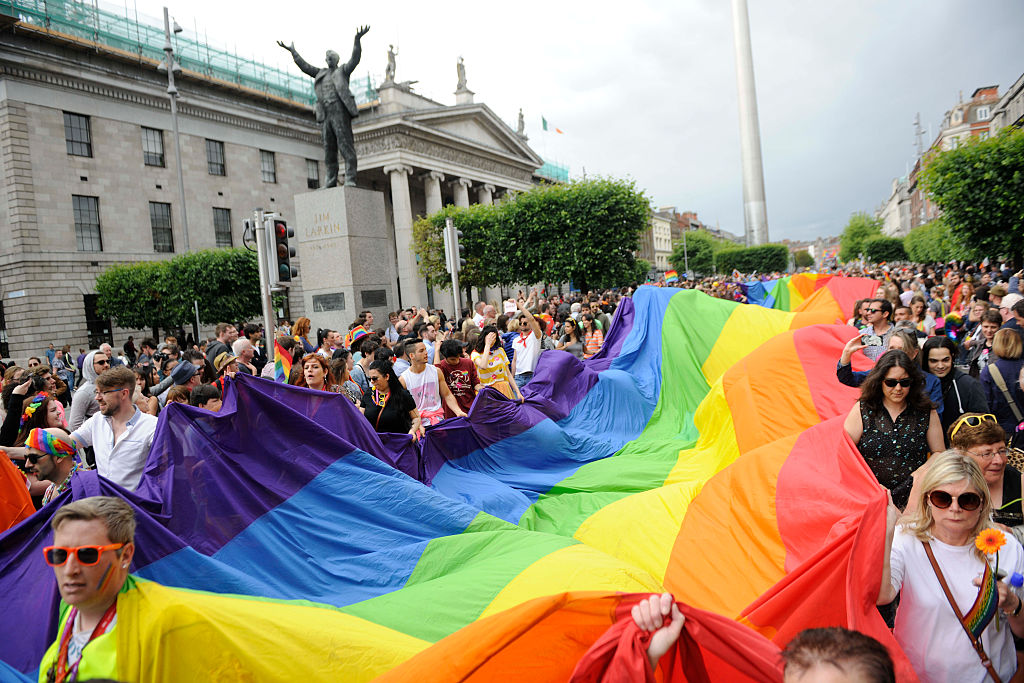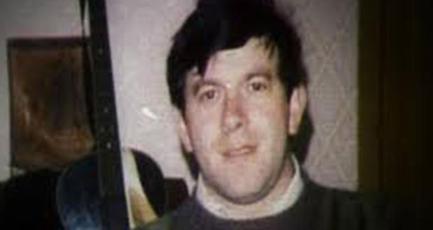In September 1982, Declan Flynn left a pub in Donnycarney, Dublin and walked to Fairview Park, a well-known meeting spot for gay men.
Declan Flynn lived in a very different time for Ireland. Homosexuality was illegal and many queer people, like him, lived their lives in fear, secrecy and shame.
That September night, Flynn was violently beaten to death by a “vigilante” group of teenage boys who wanted to remove queer people from the park. He was just 31 years old.
But his killers did not pay the price for their crime. Six months later, a judge gave them suspended sentences for manslaughter, declaring in his ruling that Flynn’s killing “could never be considered murder”.
The murder of Declan Flynn galvanised the modern Pride movement in Ireland.
Declan Flynn’s murder shocked the LGBT+ community and is widely remembered today for galvanising the modern Pride movement in Ireland.
The teenage killers held a “victory march” in Dublin after they were handed their suspended sentences — and that, for many queer people, was the final straw.
Between 400 and 800 queer people took to the streets, marching from Liberty Hall through the city to Fairview Park in protest.
“When the judge let them off with suspended manslaughter sentences, essentially what it said to us was that a gay man’s life had no value,” Tonie Walsh, curator of the Irish Queer Archive, told drag queen Panti Bliss on her radio show Pantisocracy.
That march, Walsh said, was “the first large-scale massing of lesbians and gay men in Ireland”.

When protesters arrived in Fairview Park, Walsh thought they were going to have stones thrown at them by anti-gay protesters.
“We were angry and fearful at the same time. And the only good thing that came out of all that misery was we funnelled all that anger into Ireland’s first proper Pride parade three months later, when 150 of us walked down newly pedestrianised Grafton Street.”
When the judge let them off with suspended manslaughter sentences, essentially what it said to us was that a gay man’s life had no value.
On June 25, 1983, protesters marched through the streets from Stephen’s Green to the General Post Office (GPO), where Cathal Ó Ciarragáin, Tonie Walsh and Joni Crone addressed the crowd.
In her speech, Crone delivered a satirical queer re-working of the 1916 proclamation of independence, written by Irish revolutionaries and read in the same spot many years before.
This was not Ireland’s first gay rights demonstration — that had taken place in the 1970s — but Flynn’s death galvanised and gave life to the modern Pride movement. Suddenly, queer people were no longer asking to be seen and treated as equal: they were demanding it.
It was a moment of protest, anger and visibility — and it marked a radical shift in queer activism in Ireland.
The killing has been called ‘the Irish Stonewall’.
In an interview with Una Mullally for her book In the Name of Love: The Movement for Marriage Equality in Ireland, LGBT+ rights campaigner Izzy Kamikaze said: “We were the people who organised the Fairview Park march after the killing, which is the thing that people say was ‘The Irish Stonewall’. It was.”
Ireland at the time was a staunchly Catholic country and it was a cold, unrelentingly cruel place for queer people to exist.
Since then, things have changed drastically. Gay sex was finally decriminalised in 1993. In 2015, marriage equality was legalised and the Gender Recognition Act was finally passed, giving some trans people legal recognition.
None of those changes would have happened without the tireless, painstaking work done by LGBT+ activists who spent years marching through the streets, demanding change.
But the job is not done yet. Almost 40 years since Declan Flynn was murdered, queer people in Ireland are still being attacked in anti-LGBT+ hate crimes – and hate crime legislation still lags far behind other countries.
So, while people can’t get out and march in Pride demonstrations this year, they can still honour the memory of Declan Flynn by fighting for change and equality at every turn.
